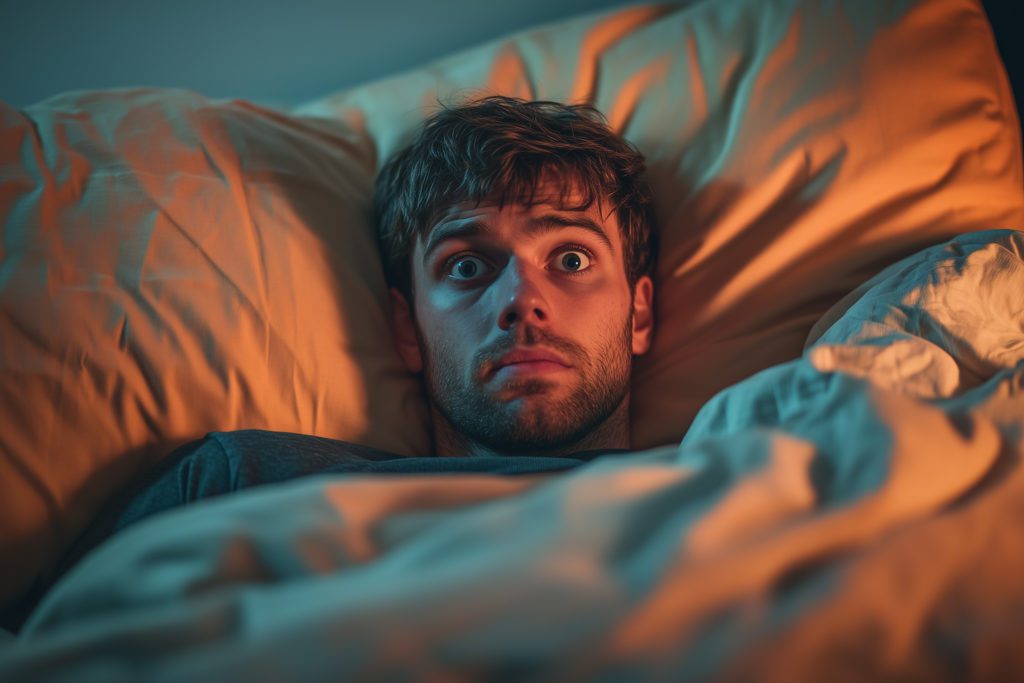
Why Do I Keep Sleeping Through Alarms?
Tired of sleeping through alarms? Discover common causes and effective solutions to improve sleep and wake up refreshed. Learn tips for better sleep hygiene and when to consult a doctor.

Have you ever set your alarm the night before, fully intending to wake up early, only to find that you keep sleeping through alarms - right through all the buzzing or ringing? You're definitely not alone if this sounds familiar. It's a frustrating experience that many of us face, often leaving us puzzled and rushing to start our day.
In this article, we'll explore some common reasons why you might be sleeping through alarms and offer practical solutions to help you rise and shine more consistently.
Common Reasons for Sleeping Through Alarms
Waking up can be harder than it sounds, and if you find yourself constantly sleeping through alarms, there might be several reasons why. Let’s dive into some of the common causes and explore how you can address them.
1. Sleep Apnea
Sleep apnea is a pretty common condition with studies reporting an estimated 936 million adults aged 30–69 years (men and women) having mild to severe sleep apnea. It’s a condition where your breathing stops and starts repeatedly while you sleep. This can seriously mess with your sleep because it often pulls you out of deep sleep into lighter sleep stages, or even wakes you up.
Common signs of sleep apnea include:
- Loud snoring
- Sudden gasps
- Choking sounds during sleep
- Feeling really tired during the day even if you had a full nights sleep.
If these symptoms sound familiar, it might be a good idea to talk with a healthcare provider about it.
2. Incorrect Alarm Placement
Where your alarm clock sits can make a big difference in whether it wakes you up. If it's too close, you might turn it off without fully waking up, and if it's too far, you might not hear it. Try placing your alarm clock across the room. This way, you have to get out of bed to turn it off, which might just be the push you need to wake up.
3. Sleep Schedule Disruptions
An irregular sleep schedule can throw off your internal clock, making it harder to wake up at your desired time. Studies have shown that going to bed and waking up at the same time every day, even on weekends, can stabilize your body's sleep-wake cycle and improve your chances of waking up when you need to.
4. Stress, Anxiety, and Depression
Mental health conditions can be big sleep stealers. They can make it tough to fall asleep or cause you to wake up in the middle of the night. This, in turn, may make it more difficult for you to wake up in the morning and sleep past your alarm.
Sleeping too much is also a common symptom of depression, with about 47.5% of those with major depressive episodes reporting oversleeping (hypersomnia). So, if you’re feeling depressed, you might be more likely to sleep through alarms.
To combat this, try relaxation techniques before bed, such as deep breathing, light stretching or yoga, meditation, or reading a book. Using mind-body techniques can positively benefit sleep quality. So creating a routine that calms your mind can help you drift off more easily, sleep more deeply, and wake up feeling more refreshed.
5. Medication Side Effects
Sometimes, the medications you take can make you sleepier than usual or affect how deeply you sleep. If you suspect that your medication is making it hard to wake up, it's important to talk to your doctor. They can help you understand the side effects or possibly adjust your dosage or timing.
Understanding why you might be sleeping through alarms is the first step towards fixing the issue. With a few adjustments to your sleep environment and habits, you can improve your chances of waking up refreshed and on time. Now let’s talk about some of those tips that might help you with sleeping through alarms.
Tips for Improving Alarm Effectiveness
If you often find yourself struggling to wake up to your alarm, here are some sleep hygiene tips that might just make your mornings a little easier. These strategies are designed to enhance the effectiveness of your alarm and help you start your day on the right foot.
Multiple Alarms
Sometimes, one alarm just isn't enough. Try setting multiple alarms at different times to increase your chances of waking up. You can also place them in different parts of your room to make sure you have to get up to turn them off.
Alarm Volume and Tone
A loud, jarring alarm might wake you up, but it could also startle you and make it harder to get out of bed. Choose a tone that is loud enough to wake you, but not so harsh that it starts your day with a jolt. Experiment with different sounds—some people find music or nature sounds more pleasant and effective than the traditional beeping. Adjusting the volume to a level that's loud enough to wake you from sleep, but not so loud that it's startling, can also help.
Vibrating Alarms
If you're a heavy sleeper, a vibrating alarm might be more effective than a traditional alarm. Vibrating alarms can help you wake up without startling you. These devices can be placed under your pillow or mattress and shake you awake without disturbing anyone else. This is particularly useful if you share a room or if traditional alarms have not been effective for you.
Morning Rituals
Creating a pleasant morning routine can make getting out of bed easier. For example, you could start your day with a cup of coffee, a healthy breakfast, or a few minutes of stretching. Try to think of your morning as a time to treat yourself with a little kindness, and you might find it becomes a lot easier to greet the day.
Building a Better Sleep Routine
Try to go to bed and wake up at the same time every day, even on weekends.
Engage in calming activities like reading, taking a warm bath, or listening to soft music before bed. Ensure your bedroom is dark, quiet, and cool. There is research that shows that a room that is too hot and too cold is linked to less time in REM sleep.
The blue light emitted from electronic devices can also interfere with sleep by lessening the amount of melotonin the body naturally produces, so avoid using screens for at least an hour before bed. Making sure you’re getting good, quality sleep can help you wake up more consistently, feel refreshed, and not sleep through alarms.
When to Consult a Doctor
If you're still struggling to sleep through alarms despite trying these tips, it's a good idea to talk to your doctor. Here are some signs that you may need to seek medical advice:
- Excessive daytime sleepiness: Do you feel tired and drowsy during the day, even after getting enough sleep?
- Difficulty concentrating: Are you having trouble focusing or staying alert?
- Frequent nighttime awakenings: Do you wake up frequently throughout the night?
- Snoring or gasping for air during sleep: Are you or your partner noticing that you're snoring loudly or gasping for air while you sleep?
- Anxiety or depression: Are you experiencing symptoms of anxiety or depression, such as excessive worry, sadness, or irritability? These conditions can often disrupt sleep.
If you experience any of these symptoms, it's important to see a doctor to rule out any underlying medical conditions.

Written by
Emily Mendez
Emily Mendez is a former therapist and mental health author. She is one of the leading voices in mental health. Emily's writing has appeared in eCounseling, SonderMind, and more. Emily is frequently interviewed by Healthline, Fatherly, INSIDER, Family Circle, and other national media for her advice and expert opinion on the latest mental health topics.
Download Pillow
Get help
Press & News
Legal
Connect
X (Twitter)
Company
Copyright © Neybox Digital Ltd.



